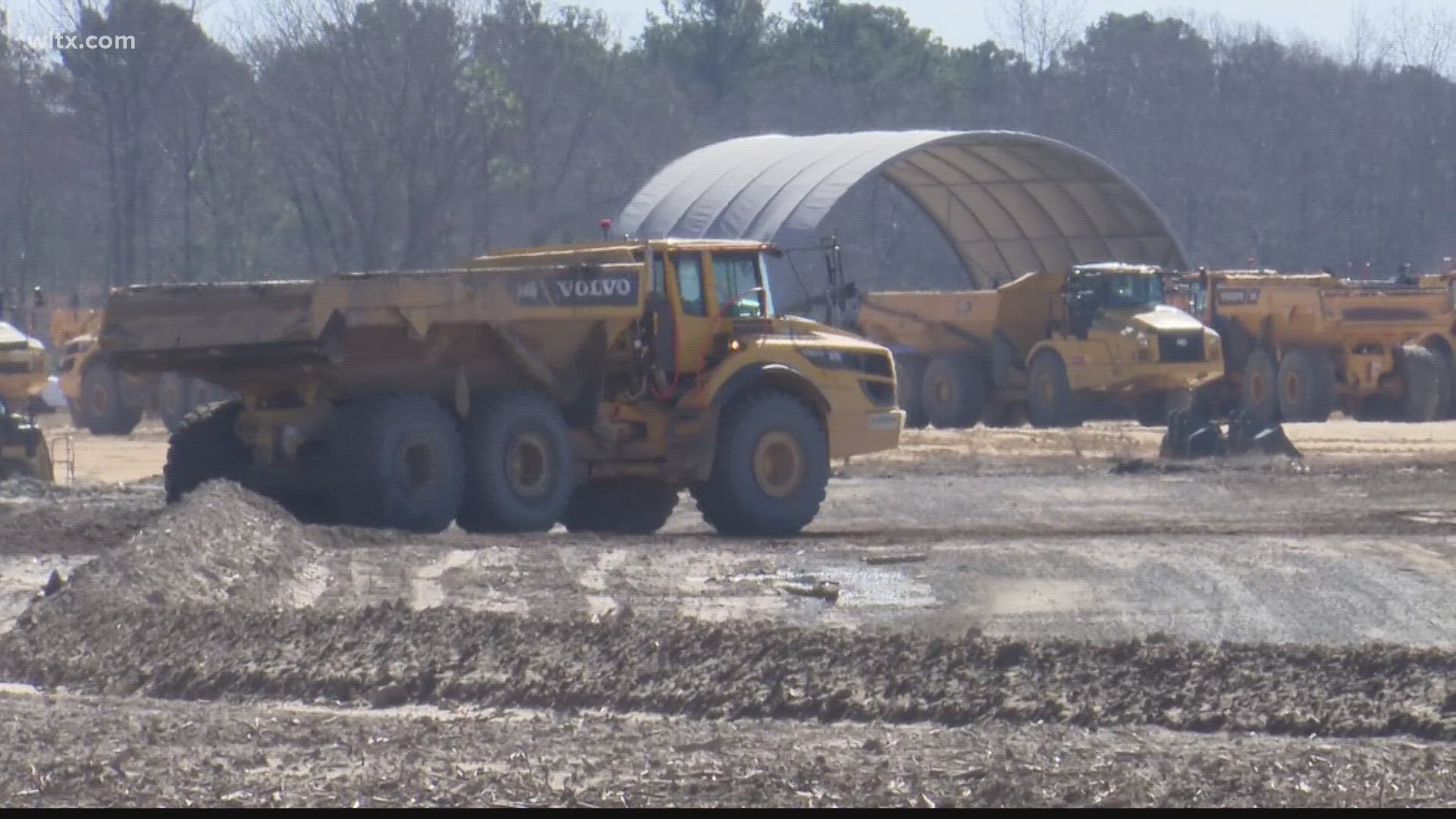BLYTHEWOOD, S.C. — Scout Motors has broken ground on their new electric vehicle plant in Richland County, a massive investment that the company and state leaders say will bring thousands of jobs to the area.
A ceremony by Scout's CEO, South Carolina Governor Henry McMaster, and state and local leaders was held Thursday morning at the construction site near Blythewood.
The plant will make exclusively electric trucks and SUVs and is a restarting of a vehicle brand that was made in the 1960s and 70s.
"What we're doing here is relaunching an American icon and we're doing it here in South Carolina, and we couldn't be prouder of doing it here in this beloved place," said Scout President and CEO Scott Keogh.
When it's completed, the plant is expected to generate 4,000 jobs and represents a $2 billion investment, the largest in Richland County history. Since the coming of the plant was announced in March of 2023, other electric parts companies, including battery makers, have said they are coming to South Carolina. South Carolina also announced a major new investment in electric charging stations across the state.
"South Carolina is the new home of innovation in America," said South Carolina Secretary of Commerce Harry Lightsey. "South Carolina is ready for the new economy, and our people are ready to be part of it."
The Blythewood site will be located off I-77 and span roughly 1,600 acres, with the facility taking up 1,100 acres.
"There's an additional investment in infrastructure, we do get a new Exit 26, I believe, SCOUT Motors Drive, I believe, is what was said. We are going to get the widening of Blythewood Road the community road will become four-lane, and we get additional infrastructure investment with Richland County Penny Tax," said Blythewood Mayor Pro-Tem Donald Brock.
Last year, the South Carolina legislature passed a $1.3 billion incentive package to help ease the company's transition to the state, including a provision that Scout hire local workers as much as possible.
The company promised a cutting-edge plant with three key components: an assembly shop, a paint shop, and a body shop. The plant will produce 200,000 vehicles yearly at peak capacity, said Dr. Jan Spies, Scout's chief production officer. That's an average of 40 cars an hour each workday.
Spies said sustainability will be a key component of the plant, with a goal of reducing emissions where they can, including gas exhaust and noise, as well as reducing water consumption. They'll also use heat pumps and LED lighting.
"Our goals include working first working toward carbon neutrality using green power sources where available," Spies said.
Still, the plant's arrival has come with some concerns, particularly regarding the potential environmental impact on wetlands. In July, the Congaree Riverkeeper and the Southern Environmental Law Center voiced their concerns over the potential negative effects of the Scout Motors plant in a letter to the U.S. Army Corps of Engineers. The groups believe the plant will cause the destruction of wetlands, more flooding, and issues with tributaries in the area.
Last September, work was paused on the plant while permitting concerns were addressed. But in January, the U.S. Army Corp of Engineers gave Scout Motors a permit, saying they could continue their construction work.
The plant hopes to have cars in production by 2027. Volkswagen Group backs the Tysons, Virginia-based company.

